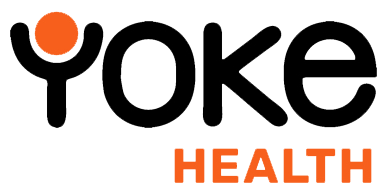5 Big Data Advances in Digital Healthcare
Posted in Digital Healthcare Insights
Matt Davies - Head of strategy & Innovation.
A digital healthcare agency can help providers in many ways make use of big data to the benefit of patients. Big data has transformed the way in which data is managed, analysed and used in many industries, but the healthcare industry is perhaps the sector which has experienced the most profound change. The use of big data has had a significant impact on the way healthcare is delivered, from reducing costs to addressing preventable diseases and even predicting epidemics. As people are living longer, the demand for quality healthcare is increasing as the years go by. Healthcare practitioners are capable of collecting vast amounts of data, but this data is only valuable if it is analysed and used in the right way.
Big Data in Healthcare Explained
Big data analytics in the healthcare sector can have life saving implications. The term big data is used to refer to large amounts of data collected through the digitisation of healthcare services. It is this data that is collected and analysed using certain technologies. When used in a healthcare context, this type of data analysis can be used to identify the health data for a specific population, identify and cure diseases and achieve greater efficiency in the delivery of services.
As the demands on healthcare continue to change, different treatment models are required. Most of the decision making surrounding these models is informed by data. Doctors and healthcare practitioners want to understand as much as they can about the patients they treat, identifying symptoms of potential illnesses and diseases as early as possible to reduce the length and intensity of treatments. The focus on healthcare analytics is prevention over cure.
That said, for many years data collection was costly, complex and time consuming. However, with the advances in technology this process is becoming easier and more cost effective to collect crucial insights and use this information to provide improved healthcare.
Data in any health service is a valuable asset and for healthcare organisations it presents huge potential. The NHS already has a significant amount of data on patients, diseases and health conditions and this data set has grown considerably in recent years in part due to the advances in technology and the growth in quality data collection and storage systems and processes. Current capabilities of technology means that substantial amounts of patient data is generated on a daily basis and it is only machine learning and artificial intelligence that have the capacity to process and analyse all of this information and then understand it so improved services can be provided and patients can be better cared for.
Big data has far reaching implications from both a business and patient perspective. It could transform the way that personalised medicine is offered, improve healthcare and offer more effective interventions in terms of healthcare.
Top 5 Big Data Advances in Healthcare
In the healthcare sector there have been many advances in healthcare including:
#1 Deployment of Staff
All senior nursing professionals who are responsible for managing staffing will experience a common problem; how many staff they should deploy for a given shift. If there are too many doctors and nurses on shift, the NHS will have to incur unnecessary wages while too few can have a negative impact on patient care. Big data is helping hospitals combat this problem by assessing daily and hourly predictions of demand for healthcare and admission rates. Using big data, the hospital is better equipped to deal with spikes in demand for healthcare services and deploy staff accordingly. This not only reduces waiting times for patients but also improves the standard of healthcare.
#2 Electronic Health Records
One of the most widespread applications of big data in healthcare is the use of electronic health records. Every patient will have their own digital record which includes their full medical history, demographics, allergies, test results and records of any illnesses. Records are then shared through secure information systems and every record is assigned a single, file that can be modified allowing doctors from anywhere in the NHS to update or change information. These systems can also provide reminders and warnings when a patient needs a new test or repeat prescription or to see if the patient has been following the advice that the doctor prescribed. With electronic records, healthcare providers can make cost savings, reduce visits to the doctor and decrease the need for unnecessary laboratory tests.
#3 Real Time Advice
Another example of big data use in healthcare is through Clinical Decision Support (CDS). This software analyses medical data almost instantly, offering practitioners with advice as they make decisions about treatment and prescriptions for patients. Wearable devices can also collect patient health data and send this information to the cloud for real time access to patient information. These details can also be used for government departments to assess the overall state of health amongst the general public to monitor and adjust treatment strategies.
#4 Patient Engagement
Many users of healthcare services already have an interest in devices that will monitor things such as heart rate, sleeping habits on a regular basis. All of this information can be collected and plotted against other trackable data to identify potential health risks. Patients can become more engaged in monitoring their own health and encouraged to lead a healthier lifestyle.
#5 Strategic Planning
In healthcare, the use of big data enables strategic planning because it provides improved insight into the motivations of the general public. Those who manage healthcare delivery can analyse check-up results amongst different patient groups and identify roadblocks which prevent people from accessing or taking the available treatments. Insights collected from big data can inform strategy development and deploy resources more effectively in problematic regions or to tackle the growth of certain diseases or illnesses in the population.
Final Thoughts
A digital healthcare agency can help you make the most of big data and achieve your organisational goals. The use of big data in healthcare brings multiple benefits to the industry including an improved patient experience, the quality of treatment and an overall improvement in the health of the population over the long term. In addition, cost savings will be achieved because treatments and patient care is more targeted and tailored towards patients.

Monthly Archives
- July 2020
- June 2020
- May 2020
- April 2020
- March 2020
- February 2020
- January 2020
- December 2019
- October 2019
- September 2019
- August 2019
- July 2019

